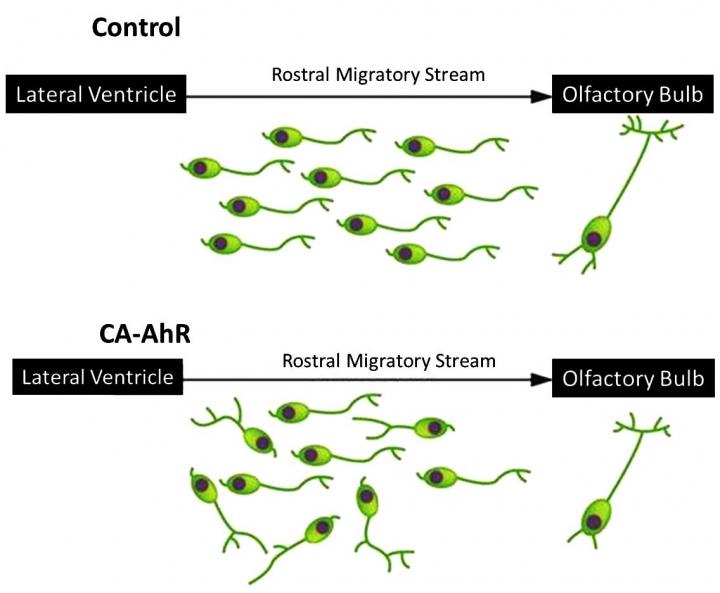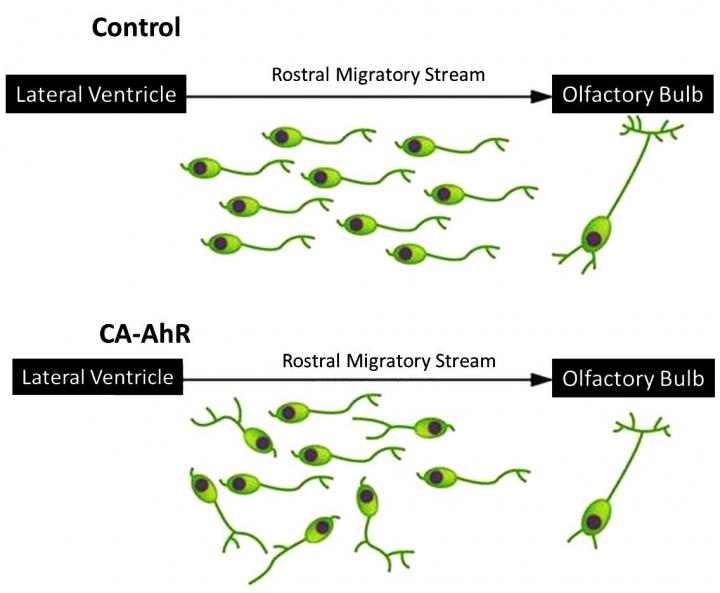
Tsukuba, Japan – Dioxins are environmental pollutants that stay in the body for long periods of time because they can accumulate in fat tissue. They are mainly by-products of combustion and industrial processes. Long-term exposure to dioxins has been suspected to have a host of toxicities, causing health issues such as cancer and impairment of the immune system and the developing nervous system.
In the body, dioxin readily forms a complex with the aryl hydrocarbon receptor (AhR), a transcription factor protein whose real function has yet to be clarified. The manifestations of dioxin toxicities require AhR. It was previously shown that adult rodents born to mice exposed to dioxins during pregnancy display cognitive and behavioral abnormalities. However, the underlying mechanisms of such manifestations have remained unclear.
In search of an answer, researchers centered at University of Tsukuba studied the possible effects of excessive activation of AhR signaling–a phenomenon thought to mimic the exposure of AhR to dioxins–on neurodevelopmental processes in mice, such as cellular migration and neurite growth. Their work was recently published in Scientific Reports.
“We speculate that disrupted AhR signaling is the underlying mechanism of dioxin’s developmental neurotoxicity,” coauthor Eiki Kimura says. “Indeed, we found that excessive activation of AhR signaling slowed the migration of neurons from their origin to their final position in the brain, which is a critical process for normal brain development.” Notably, the migrations are regulated by several proteins whose expression levels are altered by AhR signaling activation.
The findings provide evidence of the pivotal role of AhR signaling in neuronal differentiation and maturation in the developing brain, and clarify how its interaction with harmful chemicals, such as dioxins, can lead to behavioral and developmental alterations.
“The delayed development of migrating neurons, which was caused by excessive AhR signaling, may partially explain dioxin-induced abnormal behavioral alterations previously reported in laboratory animals,” coauthor Chiharu Tohyama explains. “Further studies on the relationship between AhR signaling and cytoskeleton regulation will deepen our understanding of the mechanism of AhR-dependent toxicity.”
###
Media Contact
Masataka Watanabe
[email protected]
81-298-532-039
The post Researchers uncover how environmental pollutant dioxin alters brain development in mice appeared first on Scienmag.





